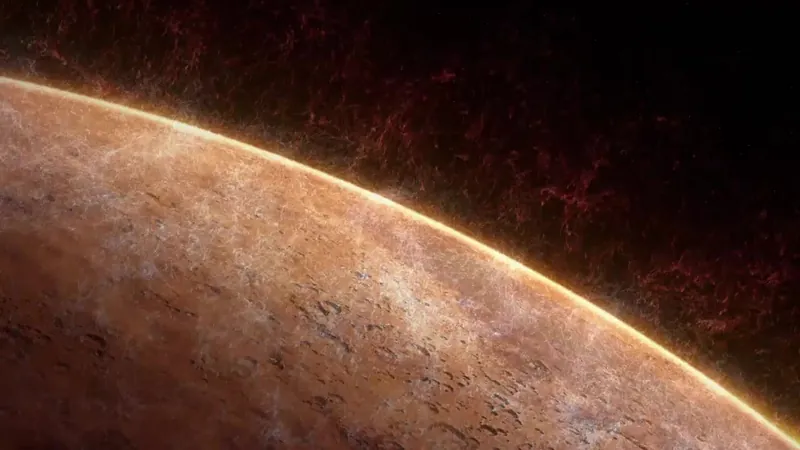
Mars May Hold a Secret Ocean Beneath Its Surface: Major Discovery Rocks Space Science!
2025-05-12
Author: Mei
Exciting news from the Red Planet: recent seismic evidence suggests that Mars might be hiding a colossal ocean of liquid water beneath its surface! A groundbreaking study published on April 25 in the journal National Science Review uncovers the possibility that a vast reservoir could lurk in Martian rocks, lying 3.4 to 5 miles (5.4 to 8 kilometers) deep.
This hidden ocean could be large enough to flood the entire surface of Mars with water up to 2,560 feet (780 meters) deep, rivaling the volume currently trapped in Antarctica's ice sheets. That's right—Mars could be a lot more watery than previously believed!
Once upon a time, Mars was a wet wonderland. Between its formation 4.1 billion years ago and roughly 3 billion years ago, it hosted rivers and lakes, as indicated by ancient valley networks and sediment formations. But as the planet transitioned into the cold, desolate landscape we see today, it seemingly lost most of its precious water.
According to co-author Hrvoje Tkalčić, a geophysics professor at the Australian National University, the decline in Mars' magnetic field exposed it to relentless solar radiation. This led to the depletion of its atmosphere and, ultimately, the evaporation of its surface water into space or the trapping of water as ice in its subsurface.
However, scientists have long faced a puzzling question: where did all Mars' water go? Previous theories didn’t quite explain the substantial amount of 'missing' water. This new research provides a tantalizing possibility—there could still be liquid water lurking underground!
Using seismic data collected by NASA's InSight lander—sent to Mars in 2018—researchers analyzed seismic waves produced by asteroid impacts and marsquakes. They discovered that these waves slowed down significantly in a specific layer 3.4 to 5 miles below the surface, suggesting that liquid water may exist within the porous rocks.
"This 'low-velocity layer' resembles a saturated sponge, filled with liquid water, similar to Earth's aquifers," Tkalčić explained. If true, this water could account for the vast quantities that have previously been unaccounted for.
Despite other studies hinting at ice reserves beneath Mars' surface, this new finding opens up exciting possibilities for the existence of liquid water—and by extension, potential life. While we can't scream 'Eureka!' just yet, drilling into the Martian crust on future missions could reveal whether this hidden ocean truly exists.
As Tkalčić aptly concluded, "Future missions equipped with seismometers and drills are crucial to confirming this hidden treasure and unraveling the mysteries of water on Mars. The search for life beyond Earth may be closer than we think!"



 Brasil (PT)
Brasil (PT)
 Canada (EN)
Canada (EN)
 Chile (ES)
Chile (ES)
 Česko (CS)
Česko (CS)
 대한민국 (KO)
대한민국 (KO)
 España (ES)
España (ES)
 France (FR)
France (FR)
 Hong Kong (EN)
Hong Kong (EN)
 Italia (IT)
Italia (IT)
 日本 (JA)
日本 (JA)
 Magyarország (HU)
Magyarország (HU)
 Norge (NO)
Norge (NO)
 Polska (PL)
Polska (PL)
 Schweiz (DE)
Schweiz (DE)
 Singapore (EN)
Singapore (EN)
 Sverige (SV)
Sverige (SV)
 Suomi (FI)
Suomi (FI)
 Türkiye (TR)
Türkiye (TR)
 الإمارات العربية المتحدة (AR)
الإمارات العربية المتحدة (AR)